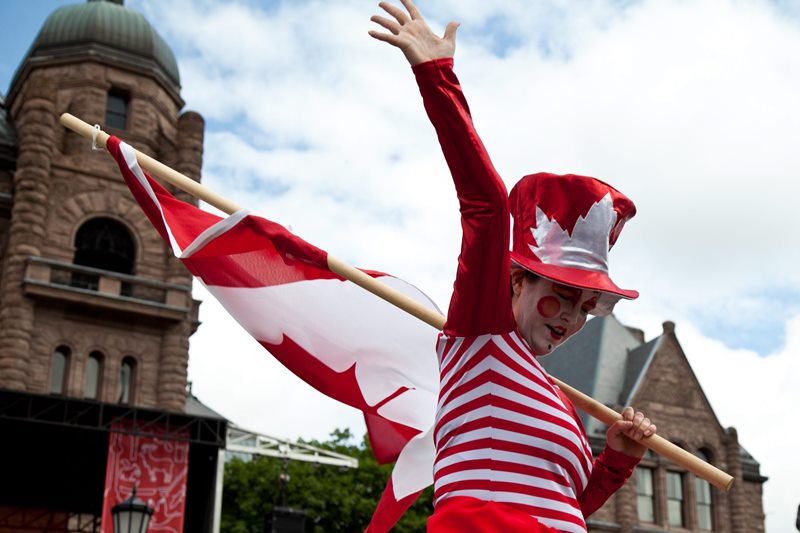As Canadians from coast to coast get set for a burst of patriotic Canada Day pride this week, a new poll indicates that we don’t have a very high opinion of ourselves the rest of the year.

The survey, conducted by Ipsos on behalf of Global News, shows that Canadians tend to overestimate the amount of drinking, smoking and toking going on in their respective provinces, and underestimate the amount of volunteering, international travelling and voting that takes place.
The good people of Saskatchewan, for instance, on average tended to believe that just under 40 per cent of the residents of their province aged 12 and older would qualify as heavy drinkers (defined as 4-5 drinks in one sitting at least once a month).
In reality, it’s only about 19 per cent.
Across Canada, the average guesses for how many people in a given province smoke cigarettes on a regular basis came in between three and 11 percentage points higher than the real figures.
For marijuana use, the gaps were even larger. In New Brunswick, for instance, people estimated that 39.7 per cent of the population had gotten high in the past year. The true proportion? Just 10 per cent.
“The idea that marijuana smoking is a big issue in Canada … I think that’s driven an awful lot by what people have been seeing in the news,” said Darrell Bricker, CEO of Ipsos Public Affairs. “The truth is that not that many Canadians actually smoke pot.”
Bricker said there seemed to be a tendency for people to assume their neighbours are engaged in more “Bob and Doug McKenzie-like behaviours” than they really are.
“The gap (between) perception and reality, that’s the public education challenge for people who want to have a real conversation about the issues that are concerning Canada.”
Voting, volunteering and vacationing
It’s not just the perception of vices that seems to be skewed. Just as they overestimated things like smoking, respondents tended to underestimated more virtuous activities, like volunteering.
People living in British Columbia guessed that around 20 per cent of their neighbours are volunteering in their communities, when the figure is actually nearly 50 per cent.
How many registered voters in Ontario cast a ballot in the last federal election? Ontarians guessed 52.5 per cent, while Elections Canada says it was 67.8 per cent.
And then there’s the question of international travel. In every province, respondents underestimated (sometimes by a little, sometimes by a lot) the number of people holding a Canadian passport.
“Canadians are actually, in many ways, more virtuous and better behaved than we think we are,” Bricker noted.
Ipsos also calculated a so-called “index of ignorance,” determining the average amount of error that respondents in a particular province were off by across all questions.
It turns out that Quebecers have the best grasp of reality, with an overall average error of 10 points, while residents of Saskatchewan were the furthest off, with an 18-point average error.
As Canada Day approaches, Bricker said he was surprised by how wrong people were in terms of their guesses.
“We need to learn a little bit more about what our country is all about,” he said.
Exclusive Global News Ipsos polls are protected by copyright. The information and/or data may only be rebroadcast or republished with full and proper credit and attribution to “Global News Ipsos.” This poll was conducted between May 30 and June 13 with a sample of 2,552 Canadians from Ipsos’ ISay panel, interviewed online and by telephone. The precision of Ipsos online polls is measured using a credibility interval. This poll is accurate to within +/ – 2.2 percentage points, 19 times out of 20, had all Canadian adults been polled.
- ‘Shock and disbelief’ after Manitoba school trustee’s Indigenous comments
- Canadian man dies during Texas Ironman event. His widow wants answers as to why
- Several baby products have been recalled by Health Canada. Here’s the list
- ‘Sciatica was gone’: hospital performs robot-assisted spinal surgery in Canadian first







Comments